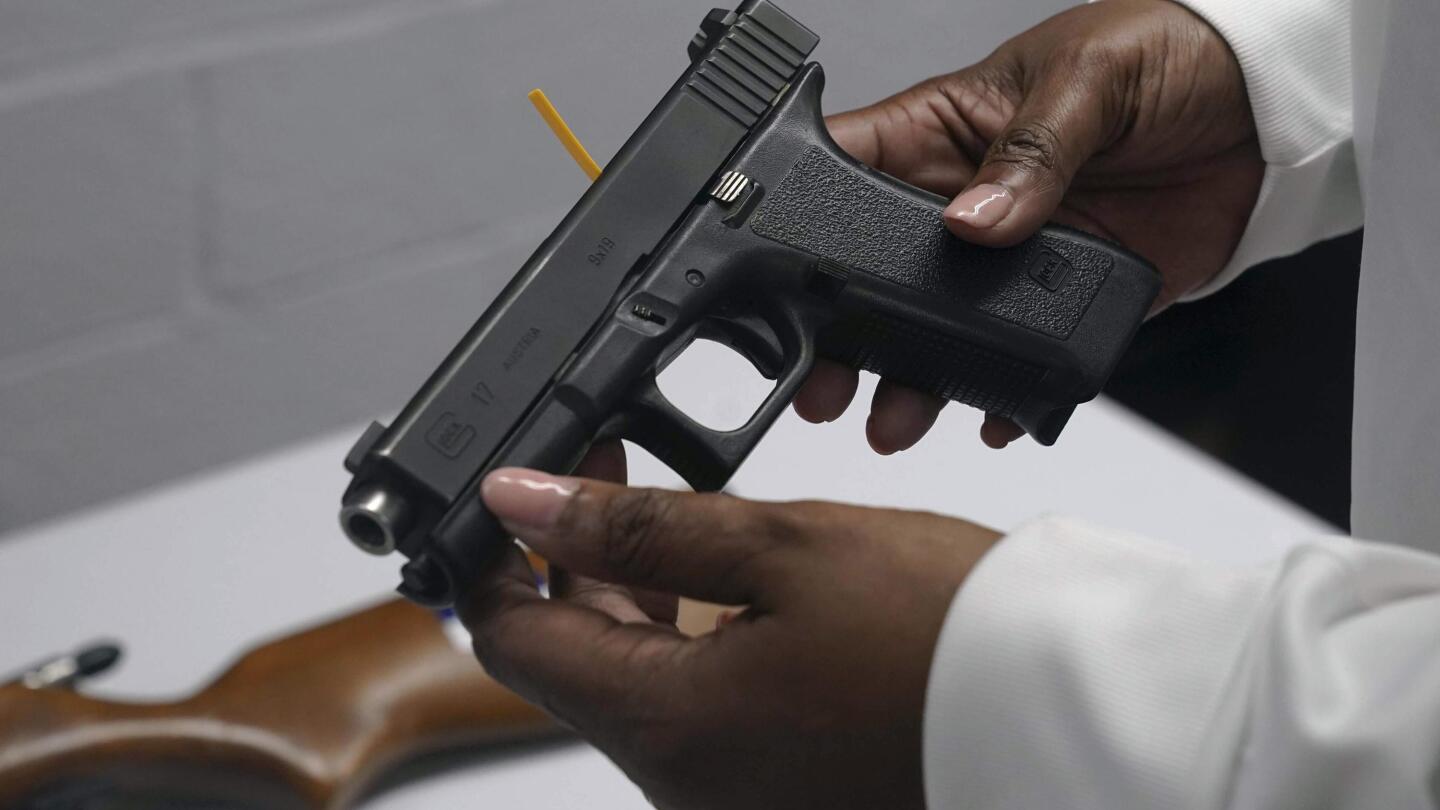Wilkie Arthur
Freelance Court Reporter
#TurksandCaicosIslands, October 9, 2023 – The trial is ongoing, started on Monday September 25 against KENIEL DUVERVIL, 21 in the Grand Turk Supreme Court before his lordship the Hon Mr. Justice Davidson Kervin Baptiste and a six member jury.
The make-up of the jury is four females and two males.
On Thursday 28th September just ahead of the Youth Day public holiday, Magnetic Media travelled to the Nation’s Capital to cover the trial proceedings.
Three witnesses testified that day and we will outline two of those testimonies in this report and the third person’s evidence in a later report.
Assistant Superintendent of police (ASP) Dexter Porter in his evidence in chief as questioned and guided by prosecuting counsel Mrs Nayasha Hatmin said he was part of the planned operation that went to The Bight community when they found the two firearms and both with ammunitions.
He said, he was the officer who tested the firearms and came to a conclusion that both were lethal and could kill someone or cause a person grievous bodily harm. ASP Porter testified that he took the firearms to the gun range using police issued ammunition, as well as bullets found with the guns for his testing.
The senior police said both guns were in perfectly working condition and the ammo for each were live rounds capable of discharging.
In his evidence the ASP told the Court that the accused was found naked in his home; he said he was the third officer to have entered the targeted house in the tactical operation in The Bight, Providenciales.
He said they first grabbed a hold of the defendant and officers found a Glock 17 pistol, bearing serial number LED547 with 14 rounds of 9 mm ammunition. These were tendered and admitted into evidence with the six member jury being able to see them and if they so desired, could have asked the ASP, as well as any of the other witnesses questions; however the jury panel declined to ask ASP Porter any questions.
We also heard of the findings of a much bigger firearm in the back trunk of a car.
Detective ASP Porter initially described it as a PA 15 carbine rifle with a serial number of PA134393 that carried much larger bullets; the firearm in question was also shown to the jury and trial judge.
However, in cross examination by the senior defense attorney Finbar Grant, who is representing the accused man, he was able to get D/ASP to agree that although the gun is a much bigger gun and carries much larger bullets, the manufacturers calls it a PA 15 carbine pistol and not a rifle.
The senior public prosecutor, Mrs Hatmin then applied to the judge to amend the charge by deleting the word rifle and inserting pistol. Porter said that firearm can shoot at long distance and how both guns were semi-automatic
weapons and not automatic weapons.
He was asked to describe the difference and he said an automatic weapon when you press the trigger all the bullets are released until the clip/magazine is empty and a semi-automatic only bullets are released when you press the trigger, you have to press the trigger each time for a bullet to be released/discharged, he told the jury.
He was briefly cross examined by attorney Grant.
Following D/ASP Porter’s evidence, a 25-year-old young lady TM from The Bight gave evidence in the trial concerning the Fuga car that the larger firearm and magazine with bullets was found in.
She told the court that yes she knows the accused for many years from Clement Howell High School (CHHS) days. She was then allowed to identify the accused through the video link as the person sitting in the back in a gray shirt. She said her car was giving her problems and she gave it to the defendant Mr. KENIEL DUVERVIL. She said she couldn’t remember her car license plate number but when shown a car on the video link and shown the license plate number, she said that’s it, that's her car and that’s the car she gave him to take to the mechanic.
She denied knowing anything about the gun in the back trunk of the car.
The woman witness went on to say, “I’ve never seen or touched a gun in my life before.”
She said nothing was in the trunk and nothing was wrong with the trunk when she give it to him. Her evidence was brief, straight to the point and concerning the car alone. The woman was however still cross-examined by Mr Finbar Grant, who had only a few questions.
The trial continues, with a verdict expected later on in this week.


 News3 days ago
News3 days ago
 News1 week ago
News1 week ago
 Caribbean News4 days ago
Caribbean News4 days ago
 News3 days ago
News3 days ago























